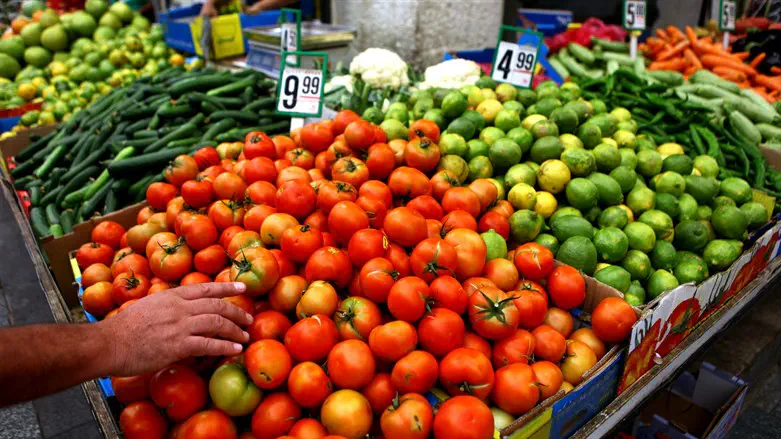
Finance Minister Avigdor Liberman and Agriculture Minister Oded Forer have published a new draft order for a public hearing on the subject of reduction of taxes on fruit and vegetables.
The draft order includes the immediate cancellation of import duties on a number of fruits and vegetables – including avocado, garlic, mushrooms, peas, beans, figs, pineapple, artichoke – with the intent being to bring about an immediate drop in the prices of these items.
Other taxes on fresh, frozen, and canned fruits and vegetables are to be reduced gradually over the next five years, in order to give Israeli producers time to acclimatize to the new situation.
“This outline for opening the markets to competition and reducing the prices of fruits for the consumer includes parallel assistance to be provided to Israeli farmers by the government,” said Minister Forer. “We are moving away from protectionist measures toward direct support, and we expect to conclude our discussions with representatives from the field of agriculture within the next few weeks. Opening markets will lead to cheaper produce for consumers, and will also broaden the range of products available and enable local agriculture to develop via direct support and grants provided to farmers. I hope that our discussions with the representatives of farming organizations will prove fruitful, and that we will be able to formulate the best possible outline for providing direct support to local farmers.”
Prices of fruit and vegetables have skyrocketed in recent years, going up by over 80 percent. Reducing import taxes on such produce will increase competition and may lead to significant reductions in prices; according to estimates, the savings will amount to over NIS 840 annually per household or NIS 2.7 billion for the entire country.
Assistance provided to the agricultural sector is expected to include direct grants to farmers, expansion of tax credits for farmers, marking the country of origin on produce, reducing the prices of agricultural products for farmers (such as pesticides), and the investment of over NIS 2 billion in innovation and measures to increase productivity in agriculture. Grants will also be given toward the purchase of equipment and advanced machinery.
